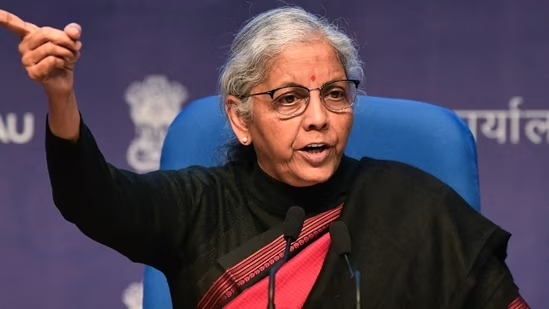MSME expect special package from Sitharaman on Feb 1
The share of MSME's in the country's GDP in 2021-22 was 29.15 per cent
image for illustrative purpose

New Delhi: The MSME sector wants Finance Minister Nirmala Sitharaman to come out with a special package for small and medium enterprises to ensure greater availability of institutional credit at competitive rates to enable it to play a bigger role as India moves closer to becoming a USD 5 trillion economy.
Sitharaman is scheduled to present the interim Budget 2023-24 in the Lok Sabha on February 1. This will be the last major economic document of the government before the next general elections.
The share of MSME (Micro, Small & Medium Enterprises) sector in the country's Gross Domestic Product (GDP) in 2021-22 was 29.15 per cent. On expectations from the Budget, the Federation of Indian Micro and Small & Medium Enterprises (FISME) said the relationship between banks and MSME is an uneven one with the balance of power heavily tilted in favour of the lenders.
"Lack of competition in the banking sector (75 per cent of banks being public sector) and weak regulatory institutions, which have not been very successful in ensuring customer centredness of banks, and near-defunct grievance redressal mechanism (Office of Banking Ombudsman) all coalesce into an unhappy experience for an ordinary MSME owner with the banks -- whether private or public," FISME Secretary General Anil Bhardwaj said.
Bhardwaj expects Sitharaman to address issues faced by the MSME sector in her Budget. The share of export of MSME-specified products in the country's overall exports was 45.56 per cent in 2023-24 (up to September 2023), up from 43.59 per cent in 2022-23, according to a reply to the Lok Sabha by the Ministry of Micro, Small and Medium Enterprises.
Consultancy firm Deloitte said to reduce risks in capital flows to MSMEs, particularly industries such as automotive, electronics, industrial, and electrical machinery, and chemicals, it is advisable to promote risk mitigation tools, like credit guarantees, and insurance schemes.
It also noted that only 6 per cent of MSMEs actively sell on e-commerce platforms. To boost digital commerce, the government must reimagine it, with an ecosystem that eliminates or resolves challenges for stakeholders.
As on December 8, 2023, the total employment recorded on the Udyam Registration Portal (since July 2020) was 15.55 crore, including informal micro enterprises registered on Udyam Assist Platform.
Puneet Kaura, Chairman of CII Delhi State and MD & CEO of Samtel Avionics, said the MSME sector is the backbone of the country as it employs a large number of people, besides contributing to the growth of the manufacturing sector and promoting exports. He said one of the main problems being faced by the MSME sector is the availability of timely credit at competitive cost. "We want Finance Minister Nirmala Sitharaman to come up with a special package for MSMEs in the Interim Budget, so that the small and medium units do not suffer for want of credit.
"This sector has the talent and risk-taking appetite and can play a big role in strengthening India's capabilities even in critical sectors such as semiconductors, space technology, defence, and medical equipment," Kaura said.
Rohit Arora, CEO and Co-founder, Biz2X and Biz2Credit, anticipates a Budget that prioritises financial inclusion and ease of doing business, fostering a conducive environment for growth. "Measures such as simplified regulatory procedures and reduced compliance burden can empower startups and MSMEs, promoting a more agile and competitive landscape," he said.
In alignment with the digital era, investments in digital infrastructure, cybersecurity, and skill development are essential for the sustainable growth of startups and MSMEs, he added.
The Union Budget 2023-24 had earmarked Rs 22,137.95 crore for the MSME ministry, 41.6 per cent higher than the preceding fiscal year. There are expectations that the allocations will be significantly higher for the next fiscal.
H S Bhatia, Managing Director at Kelwon Electronics & Appliances Pvt Ltd, which is the manufacturing partner of DAEWOO India, said a pressing concern for the majority of MSMEs is the hope for relief from financial burden through proposed tax breaks and benefits. A pivotal expectation revolves around the potential simplification of the capital gains tax structure, viewed as a positive step that could significantly enhance the investment landscape, he said. The Budget should also consider the challenges faced by MSMEs in the consumer electronics manufacturing sector, he added.
Ayush Lohia, CEO of Lohia, an Electric Vehicle (EV) manufacturing company, said the MSMEs in the sector are anticipating targeted measures to address their unique challenges and opportunities. For easing financial access, a paramount expectation is the reduction of interest rates on loans, he said. "Moreover, expanding the coverage of credit guarantee schemes such as Credit Guarantee Fund Trust for Micro and Small Enterprises (CGTMSE) is crucial. By enhancing the effectiveness of these schemes, the government can improve risk perception among financial institutions, by encouraging them to lend more liberally to MSMEs in the EV domain," Lohia added.
The MSME ministry implements various schemes and programmes aimed at the promotion and development of the sector in the country. These schemes/programmes include MSME Champions Scheme, CGTMSE, Prime Minister's Employment Generation Programme (PMEGP), Micro and Small Enterprises - Cluster Development Programme (MSE-CDP), and Raising and Accelerating MSME Performance (RAMP).

